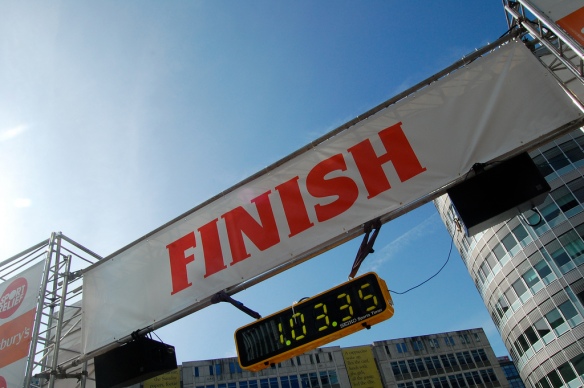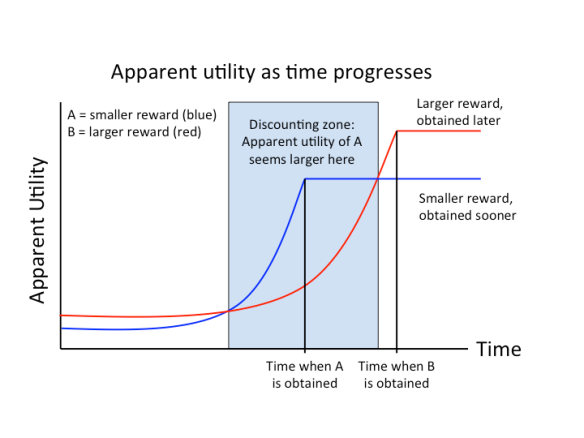(part one)

Photo by olga.palma
In the movie Gattaca, Vincent Freeman is an "in-valid," a genetically inferior individual in a society where "valids" are designed to have only the best genes of their parents. Handicapped by myopia and heart problems, Vincent must compete with valids for his dream job of being an astronaut, which requires exceptional intelligence, physical fitness, and (for some reason) typing skills. How does he do this? He studies for long hours at night after his day job. He does pull-ups using his dense astronomy textbooks as weights. He practices typing on a cardboard box. As a result, Vincent is able to at least blend in with his genetically superior peers through sheer effort. (Will he surpass them? Don't ask me—watch the movie.)
The Diligent Individual
This is a familiar story, but it is valuable to look at it more closely. What exactly distinguishes Vincent from other in-valids? On a functional level, he succeeds in consistently putting in extra focused hours. What, then, allows him to do that?
Two things:
- He is highly motivated to achieve his goal. Vincent doesn't kind of want to be an astronaut. He lives to be an astronaut. His entire being is devoted to that singular goal.
- He chooses moment-to-moment actions that work towards his goal. Every night, Vincent has a choice: relaxation or self-improvement. Guess which one he picks.
The difference between Vincent and the average person is that Vincent chooses to work where the average person chooses to procrastinate. This is the only functional difference. Being diligent is only a matter of usually choosing to follow your goals, nothing more. Over time, this will separate the diligent from the ordinary.

Each time you resist procrastination, you become more diligent (Photo by Viktor Hertz)
What does this mean for you?
- The strength of your long-term desires has a huge impact on how consistently you will follow through on them. Don't overlook this simple fact! I find it helpful to constantly remind myself of how much I want to achieve a particular goal and how it will positively affect my future.
- You have the choice, in every moment of your free time, to be a Vincent. It's as simple as that. Every time you decide to go on Facebook instead of working, you bring down your average, taking a step towards mediocrity, whereas every time you decide to put in an extra effort, you move towards diligence. What's more, since humans naturally form habits, each action you take will bias yourself to act similarly in the future.

Photo by Bart Hiddink
But wait, isn't downtime important? Don't people function better with breaks? And isn't life about more than just work?
Yes, yes, and yes. These are all valid claims. But if you're like me, you probably waste a lot more time than you need to, time which you later wish you had spent otherwise. That is the kind of inefficiency that I want to eliminate here.
What's next?
Obviously, there is no fail-safe method to becoming diligent. But by keeping in mind thatevery choice you make matters, you will more often act in accordance with your long-term desires. That is, you will act such that later on you don't regret how you spent your time. And that is the essence of reflective happiness.
(part two)

Photo by jayneandd
In the first part of this post, I laid some basic groundwork for approaching diligence. I emphasized that you have a choice to be diligent or not each time you consider procrastinating, and that your moment-to-moment actions now will affect how you behave in the future. In this part of the post, I'll list three common impediments to diligent goal-accomplishment and some ways to overcome each obstacle.
1. Not enough time or energy
If you're like most people, your everyday schedule is packed. This will probably be true until you retire. If you put something off because you don't have enough time, what you're really saying is that that something is not a priority. That can be okay—you will have more success in what you do if you don't take on too many projects. But make sure you're ready to give up a project completely if you don't have room for it—you shouldn't regret never learning the piano if you are spending your time in a more valuable way. However, if you're not actively pursuing a side project already, chances are you have some spare time lying around.
2. One-time exceptions
Once you've decided that a project is worth your time right now, you may be inclined to make one-time exceptions ("I just had a test today," "I stayed up late last night," "I'm feeling under the weather"). These are the worst enemies for your goal, and they are exceptionally easy to fall prey to. If you've decided that a project is worth your time, then I would beextremely critical of any one-time exception excuses. If you allow even one of these, it opens the door for future excuses, and before you know it, you never go to the gym anymore or you realize it's been two months since you've picked up your new book.

One-time excuses will kill your goals
(Photo by Amy West)
How do you solve this problem? Aside from making a no-exceptions policy, one way to motivate yourself to work towards your goal even when you're not feeling 100% energized and ready to work (itself a rare occurrence) is to leverage several of your desires to make a firmer commitment. Say you want to get into a regular exercise routine. You might do this because you want to be a healthy person. But you also probably want to be the kind of person who exercises—someone who can motivate themselves to follow some regular workout schedule. Here, you're using your desire to be healthy and your desire to be diligent to bully yourself into sticking to your schedule. If you can make a firmer commitment to your goal, you will be more resilient against one-time exceptions.
3. Discounting the value of future goals
People tend to perceive rewards in the present as more valuable than rewards in the future, even when the present reward has a lower actual value. This is a phenomenon known as hyperbolic discounting, and it partly explains why you might go on Facebook now instead of beginning your paper or why you might stay in bed and snooze your alarm instead of getting up on time. Discounting is closely related to one-time exceptions and can be overcome in a similar way. Since people have a natural tendency to give less weight to future consequences, it is important to consciously remind yourself of the future impact of your present actions.

Hyperbolic Discounting (Hyperbolic refers to the shape of your apparent utility curve as time passes--when you are close to realizing a reward, the apparent utility increases rapidly.)
Suppose you have a final paper due in a month. You know it would be bad for your health and your grades if you begin your paper a few days before it is due. However, due to discounting, those consequences are dulled at the moment, paling in comparison to the small entertainment value of playing Draw Something right now. To compensate for this discounting, you can remind yourself of the specific impact your actions in the present will have on your future. If you procrastinate now, you will be really stressed at the end of the semester. If you get a bad grade, you will probably be very unhappy with yourself and you'll have a slightly harder time getting job opportunities in the future. Are you really willing to risk that outcome just to go on Facebook for a few minutes?
Conclusions
It's hard to be diligent, and that's partly because of human nature. Hopefully, by being aware of the specific psychological weaknesses that humans have, you can make a conscious effort to resist them and ultimately succeed in achieving your goals.

没有评论:
发表评论